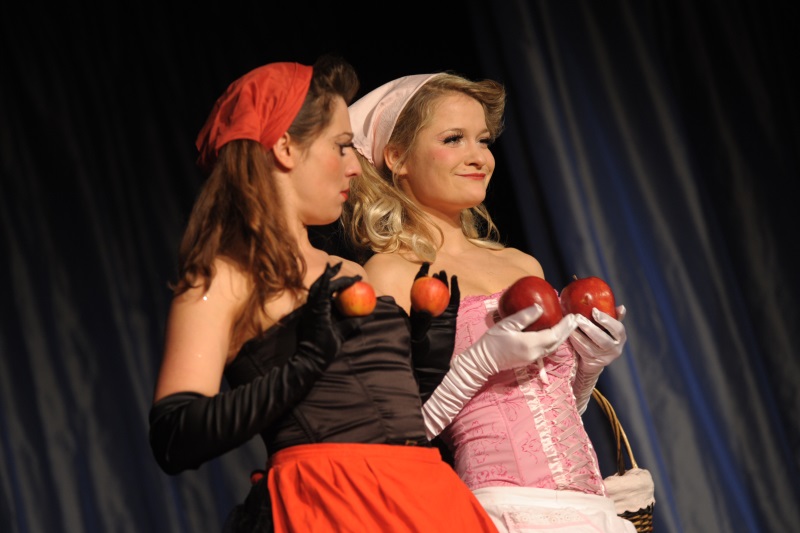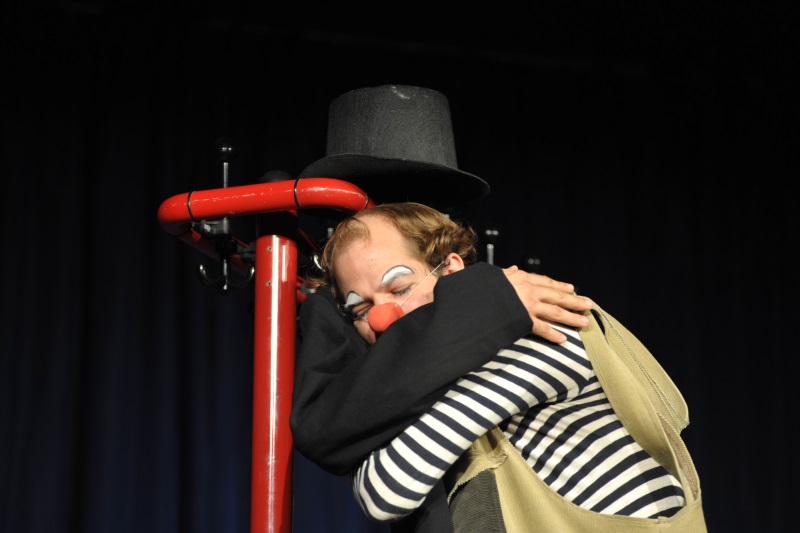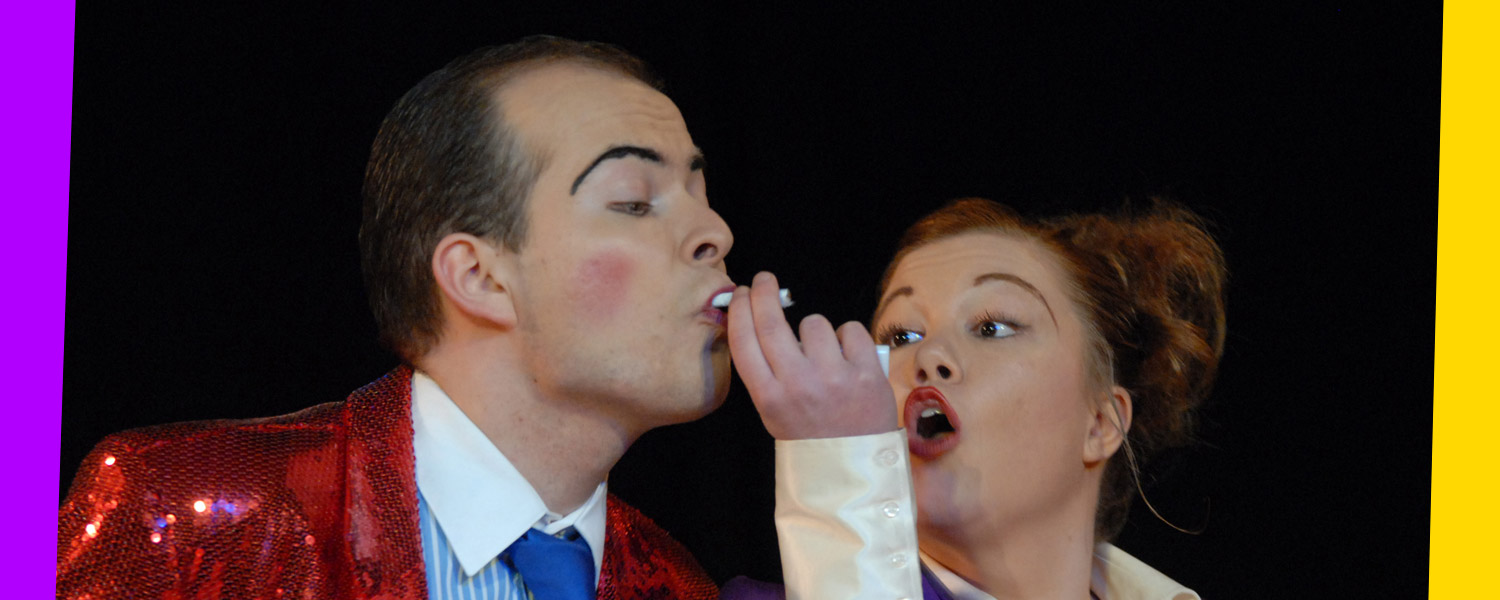The 3rd Room of Laughter
Generally, the concept of status in communication is associated with power and powerlessness, as well as with control and subservience.
In the best case, it's about how to gain the better position in a status dispute.
Similar relationships can be found with classic clowns in the circus.
The white clown, representing high status, presents the clumsy August, representing low status, to the amusement of the audience.
While August constantly strives unsuccessfully to be as great as the high status, who succeeds at everything and can do anything, the white clown, in his elegant costume, shines even when August momentarily succeeds in outsmarting the high status through cleverness and underhandedness.
Although August, as a perpetual loser, wins the audience's sympathy, no one really takes August's naive attempts seriously. August in the circus amusingly reflects to the audience "how things go in life."
This lays the foundation for all the tragicomic loser stories about the one at the top who has the power, and the one at the bottom who will never rise. Essentially a sad story, where we as viewers still laugh today at how the clumsy man is driven through the village and, as a mockery, receives the fool's crown at the end.
But there's much more to the status game.
First, it's important to understand that not every offer of status is a failed offer.
Status is, in the first place, nothing more than a relationship of pressure and counterpressure.
This creates a stable relationship that balances each other out.
This stable state allows both partners to assume an extreme, eccentric position they wouldn't be capable of without the other.
This isn't about power and powerlessness, but about living out passion, dynamism, and eccentricity.
Both players experience each other in a way they wouldn't be capable of without the other.
Only because the other holds the space and counterpressure can one recognize and enhance one's otherness.
When it's no longer about pushing the other away or letting them run into the void, the encounter takes place in the middle, where one feels the pressure and the status touches.

Status Change
When changing status, we can playfully change positions and thus fully exploit the extremes and the entire range of status.
By exaggerating, we can push the status principle to its tipping point.
When identity and status merge, the status principle becomes unbalanced.
Status becomes competition, which we reveal with humor in the game.
But status can also tip into static.
When the high-status person has long since ceased to live up to its role and the status should have changed long ago. Instead, both sides cling to their old positions, afraid to let go of their old identity.
Here we laugh at the status principle, not at the protagonists

Fool and King Duo
The interplay of opposites is most clearly evident in the classic status duo of Fool and King.
The Fool ridiculed the insignia of power and was simultaneously dependent on it.
He defined himself through his anti-stance and was thus also part of the dualistic system that stabilized the monarch's position.
At the same time, by playfully changing statuses, without calling into question the status positions, he could reveal truths to the king that no one else dared to do.
The Fool saw through the system and playfully brought it into flow when it was once again stuck somewhere.
This isn't a loser story, and the king doesn't act as an oppressor in this game either.
Both play with their positions with the goal of progress, development, and unfolding.
For a creative interplay to emerge, one must understand status as a balance and let go of the identity of power and powerlessness.
The idea that the clownish status duo should be about how to outsmart the other and gain the upper hand only through cunning and deceit corresponds to the old understanding of status, which only produces new losers again and again.

A variation of status play is character switching.
In character switching, we learn to walk in the other person's shoes and spontaneously adopt the other perspective.
In character switching, we experience directly how role play is shaped by contrast and what it feels like to develop different characters and then immediately switch between them. In the third room of laughter, role play becomes another play parameter.
In the interplay of characters, we experience how opposing identities move the play and passionately drive it forward.
Playing with contrast in character switching playfully trains flexibility and a shift in perspectiv

Keyword
Stability through pressure and counterpressure - Identity through contrast - Flexibility and dynamism - Balance - Compensation through opposites - Dialogue inspired by contrast - Communication takes place in the middle - Anchoring through pressure - Status is not a conflict - In playful dialogue, self-awareness and awareness develop through contrast - through the change of level, a change of perspective succeeds

